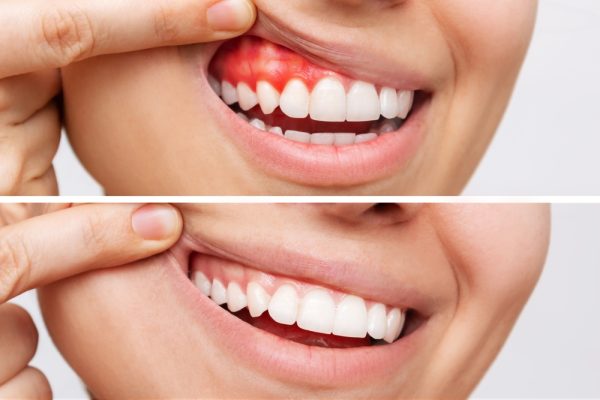In the realm of dental hygiene, flossing often takes a backseat to brushing. However, its significance in preventing gum disease cannot be overstated. By mastering the technique of flossing and integrating it into your daily regimen, you can dramatically diminish the likelihood of developing gum disease, safeguarding your oral health and preserving your radiant smile. Let's delve into the pivotal role of flossing excellence in reducing the risk of gum disease.

Understanding Gum Disease:
Gum disease, also known as periodontal disease, is a common yet serious oral health condition that affects the gums and supporting structures of the teeth. It typically begins with gingivitis, characterized by red, swollen gums that may bleed during brushing or flossing. If left untreated, gingivitis can progress to periodontitis, a more severe form of gum disease that can lead to tooth loss and other complications.
The Importance of Flossing:
Flossing plays a crucial role in preventing gum disease by removing plaque and debris from between teeth and along the gumline. While brushing effectively cleans the surfaces of teeth, it cannot reach these tight spaces where bacteria thrive. Flossing helps eliminate plaque buildup, reducing the risk of inflammation and infection in the gums.
Mastering the Art of Flossing:
Achieving flossing excellence requires more than simply moving the floss between your teeth. Here are some tips for mastering the art of flossing:
-
Use the Right Technique: Use the Flossy dental flosser. Gently guide the floss between your teeth, curving it around each tooth. Avoid snapping the floss against your gums, as this can cause irritation.
-
Floss Daily: Consistency is key when it comes to flossing. Aim to floss at least once a day, preferably before brushing, to dislodge plaque and food particles from between teeth and along the gumline.
-
Choose the Right Floss: Select a soft, waxed floss that glides smoothly between teeth without causing discomfort. Alternatively, consider using Flossy for those with sensitive gums or difficulty using traditional floss.
The Impact of Flossing Well:
By flossing well and consistently, you can significantly lower your risk for gum disease. Removing plaque and debris from between teeth and along the gumline helps maintain healthy gums and reduces inflammation, protecting against the development of gingivitis and periodontitis.
Conclusion: Elevate Your Flossing Game
In conclusion, flossing excellence is a vital component of maintaining optimal oral health and lowering the risk for gum disease. By mastering the technique of flossing and making it a daily habit, you can keep your gums healthy, your teeth strong, and your smile radiant for years to come. Don't underestimate the power of flossing – it's not just an optional addition to your dental routine; it's a cornerstone of good oral hygiene. So, commit to flossing well, and reap the rewards of a healthier mouth and a happier smile.